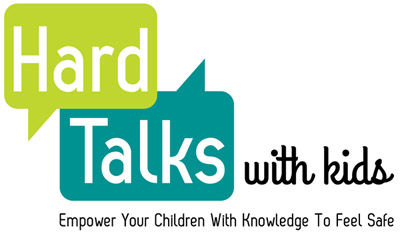

Special Needs Children, Typically Developing Siblings and a Family Plan – an interview with Chava Kadosh
hard talks January 3, 2017 admin 0

Special Needs Children, Typically Developing Siblings and a Family Plan – an interview with Chava Kadosh by Estée Pouleris
What does is mean if a child has special needs?
Special needs is an umbrella term describing the special attention and support required because of a physical, mental, emotional, developmental, behavioral or medical challenge or delay. It can include anything from a hearing challenge or peanut allergy to Epilepsy, ADHD, autism, etc. It’s important to recognize this term should not be used to define a person, but rather a condition he might have.
Is there a specific age when special needs tend to be diagnosed? And I know it’s an umbrella term, but have you found a typical age for identifying these needs?
If you live long enough, at some point in our lives every one of us will develop special needs – that’s how the body and mind work. Special needs can come about at an any age because there are so many different kinds. For example, there are congenital and neuro developmental disorders that are present at birth and may not be recognized immediately or a disability that’s acquired later in life as the body ages and is impacted by its environment.
Some children present with red flags early in development that can alert a parent to take action. This might include a delay in movement, hearing and speech, visual, social/emotional, cognition, or fine motor. As a child develops parents should discuss with their pediatrician what to expect at a given “age and stage” and should communicate any concerns. Many parents use the internet to acquire information and while at times helpful, “Dr Google” can cause a great deal of unnecessary worry and can be misleading. Speak to a sound professional instead!
Early intervention resources: In NYC there are programs that service children from birth to age 3 and beyond. You can start the evaluation process by calling 311 and ask for Early Intervention or CPSE. At the end of the article you can find a list of links for additional resources.
Let’s say a child has received a diagnosis and a plan is put in place, how can the plan include the other family members including siblings?
If there is any kind of diagnosis or even if parents are just confused and concerned about a child the whole family can be impacted. As practitioners we have to recognize that part of supporting a child with special needs is supporting the larger family. There are a lot of resources out there to support parents and siblings alike. Speaking with a social worker about what the family may be experiencing and how to support kids and parents is beneficial as a great first step.
How do I address the fact that a child with special needs may require more of my attention than his or her sibling? How do I prevent a typically developing sibling from acting out in ways to get extra attention or retreating and feeling not valued.
The entire family should be included in the plan. Kids respond to challenges and transitions in so many different ways so we need to provide an opportunity for everyone to have their feelings identified, processed and released in healthy ways. Kids and parents could learn how to calm themselves and communicate more effectively. A support group can be an outlet for siblings to feel validated by peers who share similar experiences. I’ve found that kids say incredible things when they’re all sitting together in a safe space where they’re not judged and they don’t need to worry about how their parents may feel about their responses or what other kids are going to think – they’re with other individuals in similar situations.
Are there any specific signs that a typically developing sibling is struggling and needs some additional support?
Yes, always look for changes in functioning and behavior. Are basic things like are eating and sleeping habits changing? Are they isolating themselves? Are their relationships with their peers changing? Are they being impacted academically? Are they regressing in any particular area? If you are concerned then consider what you can do to support them, whether it’s trying to find time to spend individually with that child or speaking with a professional.
What if my special needs child is physically aggressive towards his or her siblings?
If somebody is getting hurt it’s in everyone’s best interest never to ignore it, especially if it’s repeating itself time and time again. You want to try to establish a safety plan so that the child that is being hurt has recourse to protect themselves. You want to convey that the behavior is not acceptable and to try to figure out why the child who is physically aggressive is behaving that way – not for the purpose of excusing the behavior but to help the child who was hurt understand why it’s happening and what could they do in future situations to protect themselves. It’s important to involve the team working with the child with special needs to address these issues. The most important thing is to keep everyone safe.
My boyfriend and I are raising our 5 year old who is typically developing and we’re in a happy place right now, but honestly it’s hard. Raising a family is hard. I can only imagine how hard it must be on relationships with a child with special needs. Are there higher divorce rates among these families? And what kind of support can you offer to these couples early on to help them with this journey?
Unfortunately divorce rates of families with children with special needs is higher than the normal rate. When you’re already juggling family demands, career, finances and the like every additional hurdle makes it harder for relationships to thrive. Families should check their area for community centers that focus on helping families with special needs, support groups, online forums and mental health specialists trained to work in this area to deal with challenges that arise.
Being proactive can alleviate much distress so when there is a life transition, talking through your worries, goals, etc… can make things a lot easier. Aside from professionals, getting advice from friends in similar situations or those who have been through it themselves can give much needed support.
What should parents look for in a practitioner?
When looking for a practitioner it’s important to work with someone who is not only eager to help parents succeed but value what they bring to the table. It should be someone who appreciates the fact that each family is unique and comes with their own set of values, needs and skills. Within family-centered
Chava Kadosh is a Licensed Clinical Social worker with a background in child development and mother of 4 residing in NYC. She holds a dual Masters from Sarah Lawrence and NYU and treats children, adolescents and adults. She started working with children in informal settings and became fascinated by how children play, grow and develop, specifically the children who were less “typical” and didn’t follow a specific trajectory. This influenced her decision to work with both typically developing populations as well as ones with special needs.
Additional resources for families:

No comments so far.
Be first to leave comment below.